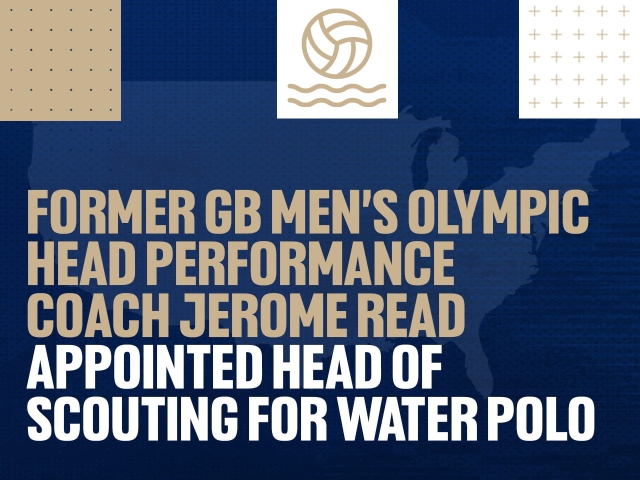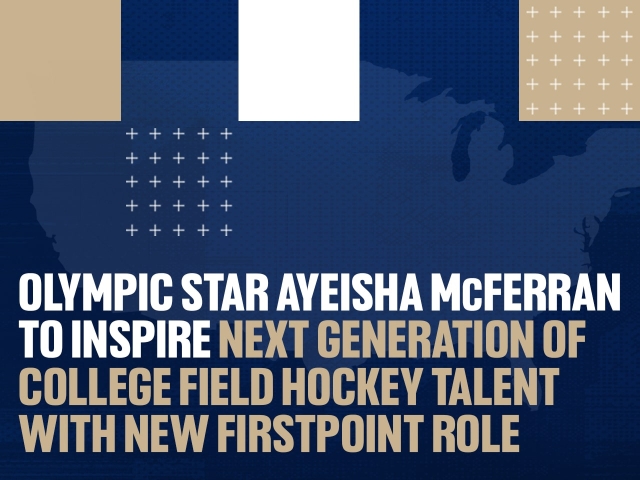Written by Ross Duncan, Chief Marketing Officer at FirstPoint USA.
In today's digital age, social media isn't just about connecting with friends – it's a powerful tool that aspiring college student-athletes can leverage to enhance their recruitment journey. College coaches and recruiters are increasingly turning to platforms like Instagram, TikTok and X to identify and evaluate potential recruits.
Your online presence can be a game-changer, offering a window into your athletic abilities, character, and overall suitability for their program. However, just like any powerful tool, social media can be a double-edged sword. One wrong post, ill-considered comment or even a like has the potential to derail your college dreams.
At FirstPoint USA, we understand the importance of navigating the social media landscape effectively. Our latest blog aims to guide you through the do's and don'ts of using social media to your advantage, ensuring you make a positive impression on college recruiters and your future career on and off the field.
The Wins: How Social Media Can Boost Your Recruitment
When used strategically, social media offers several benefits for aspiring college athletes:
- Building Your Brand: Your social media profile is an extension of your personal brand. It allows you to showcase your dedication, work ethic, and passion for your sport. Sharing positive content related to your achievements, training, team successes, professionalism and personal development can paint a compelling picture for recruiters.
- Showcasing Your Talent: Platforms like Instagram and TikTok are ideal for sharing highlight reels, training footage, and competition or game clips. High-quality videos showcasing your skills and progress can reach a wider audience of coaches who might not be able to attend all your games or events.
- Researching Colleges and Teams: Social media provides a direct line to college athletic programs. Following official team accounts on platforms like Instagram keeps you updated on their news, achievements, coaching staff, and even recruitment updates. This allows you to research different programs, understand their culture, and identify potential fits.
- Networking and Communication: Many college coaches are active on social media and may use direct messaging to connect with potential recruits. While official recruitment communication will likely occur through more formal channels, engaging respectfully with coaches' posts or sending a concise introductory message can be a way to express your interest. Remember to keep your messages professional and to the point.
- Staying Connected: Social media can help you stay connected with teammates, coaches, and mentors who can support your recruitment journey. Sharing your successes and milestones can also garner encouragement and build a positive online community.
The Fouls: Social Media Mistakes to Avoid
On the flip side, social media missteps can have serious consequences for your recruitment prospects, and well as your career further down the line. College coaches and indeed future employers are evaluating not just your athletic ability but also your character and how you might represent their institution. Here are some common pitfalls to avoid:
- Inappropriate Content: This should be a no-brainer, but avoid posting anything that is offensive, discriminatory, sexually suggestive, or promotes illegal activities. This includes photos, videos, and written posts. Remember that once something is online, it can be difficult to remove completely.
- Negative or Controversial Posts: Complaining about coaches, teammates, or game outcomes publicly can raise red flags about your attitude and team spirit. Avoid getting involved in online arguments or expressing controversial opinions that could be viewed negatively.
- Excessive Profanity or Poor Grammar: Your online communication reflects your attention to detail and maturity. Using excessive profanity or consistently making grammatical errors can create a negative impression.
- Sharing Private Information: Be cautious about sharing personal details like your home address, phone number, or sensitive family information publicly.
- Inconsistent or Misleading Information: Ensure that the information you present on your social media profiles aligns with your academic and athletic achievements. Avoid exaggerating or misrepresenting your abilities.
- Privacy Settings: Understand and utilize the privacy settings on each platform. While you want your athletic achievements to be visible to recruiters, you can still control who sees your personal posts. Your athletic or personal brand profile (if you have a separate one to your personal profile) should public and visible to college coaches. This means you can grow your network and potentially connect with coaches who are interested in you.
- Be Mindful of What You Like and Share: Be Mindful of What You Like and Share: Your engagement on social media also leaves a digital trail. Avoid liking, sharing, or retweeting posts that could be deemed controversial, offensive, or that reflect poorly on your values. Even seemingly innocuous reshares can be misconstrued or associated with your personal brand. Exercise caution and consider the potential implications before interacting with content on your feed.
Building a Winning Social Media Profile: Best Practices
@firstpointusa Social Media Playbook🤳In Part 1, we talk you through: How to Build a Winning Profile🏅Follow us for more tips on how to make social media a valuable asset in your recruitment! #socialmediatips #sportsscholarship #studentathlete ♬ Funk Upbeat5627 - AzovMusic
To make social media a valuable asset in your recruitment, follow these best practices:
- Maintain a Professional Presence: Even though you're a student, think of your social media as a professional platform related to your athletic aspirations. Use a clear and professional profile picture.
- Showcase Your Athletic Achievements: Regularly share high-quality photos and videos of your games, training sessions, and accomplishments. Focus on showcasing your skills and potential.
- Highlight Your Character and Teamwork: Share posts that demonstrate your positive attitude, sportsmanship, and commitment to your team. This could include celebrating team wins, acknowledging teammates' efforts, or highlighting your leadership qualities.
- Engage Respectfully: When interacting with coaches or college programs online, always be polite, respectful, and professional in your communication.
- Keep Your Profile Updated: Ensure your profile information, including your sport, position, and graduation year, is accurate and up-to-date.
- Think Before You Post: Before hitting "send," take a moment to consider how your post might be perceived by college coaches and recruiters. If you have any doubts, it's best not to post it.
Who to Follow: Building Your Network
Following relevant accounts can provide valuable insights and help you stay informed:
- College Athletic Programs: Follow the official accounts of college teams you are interested in. This will give you a glimpse into their program culture, achievements, and recruitment updates, helping you with your research.
- College Coaches: Many college coaches have active social media profiles where they share insights into their programs and recruiting philosophies.
- Recruiting Services and Organizations: Accounts like FirstPoint USA provide valuable information and tips for navigating the college recruitment process.
- Inspirational Athletes: Following professional and collegiate athletes can provide motivation and examples of positive online conduct.
Think Like a Pro: Your Digital Footprint Matters
As you progress in your athletic career, especially if you achieve a higher profile during your time as a student-athlete, your social media accounts will likely face even greater scrutiny. Developing responsible social media habits now will serve you well in the future. Think like a professional athlete – your online presence is part of your overall image and can impact opportunities both on and off the field.
Planting Seeds for Future Success: Building Your Brand for NIL Opportunities
Beyond the immediate goal of college recruitment, building strong and engaging social media channels now can lay the groundwork for significant opportunities down the line, particularly concerning Name, Image, and Likeness (NIL) earnings. In today's collegiate sports landscape, student-athletes with a substantial and active social media presence are far more attractive to brands seeking partnerships and athlete ambassadors.
Think of your social media as an asset. A large and engaged following demonstrates your reach and influence. Brands are willing to invest in student-athletes who can effectively connect with their target audience. Someone who consistently shares compelling content – whether it's high-quality athletic highlights, insights into their training, or authentic glimpses into their personality and interests – is far more marketable than an athlete with a dormant or sparsely populated profile.
By proactively building your brand now, you're essentially positioning yourself as a valuable commodity for future NIL deals. Aspiring athletes should create content that resonates with your audience, grows engagement through interaction and consistent posting, and develops your personal story, both as an athlete and as an individual. A well-managed social media presence tells potential brand partners that you have the ability to capture attention, drive engagement, and ultimately deliver value for their investment. Don't wait until you're a star on campus; start building your platform today to maximize your earning potential tomorrow.
Social media is a powerful tool that can significantly enhance your college recruitment journey. By understanding the do's and don'ts and adopting best practices, you can create a positive online presence that showcases your talent, character, and potential to college coaches. Remember, your digital footprint leaves a lasting impression – make it a winning one!




